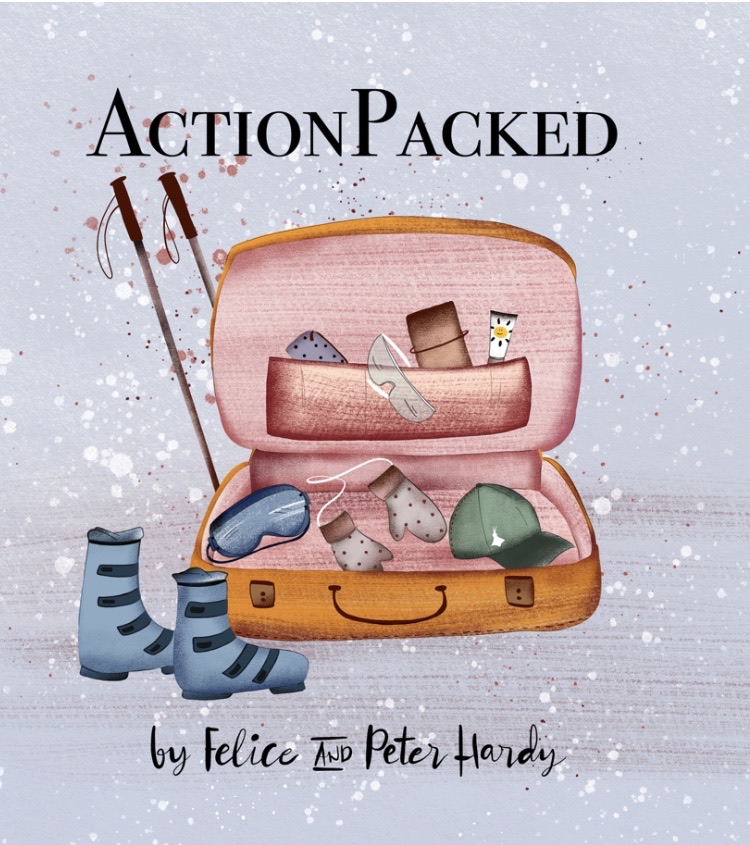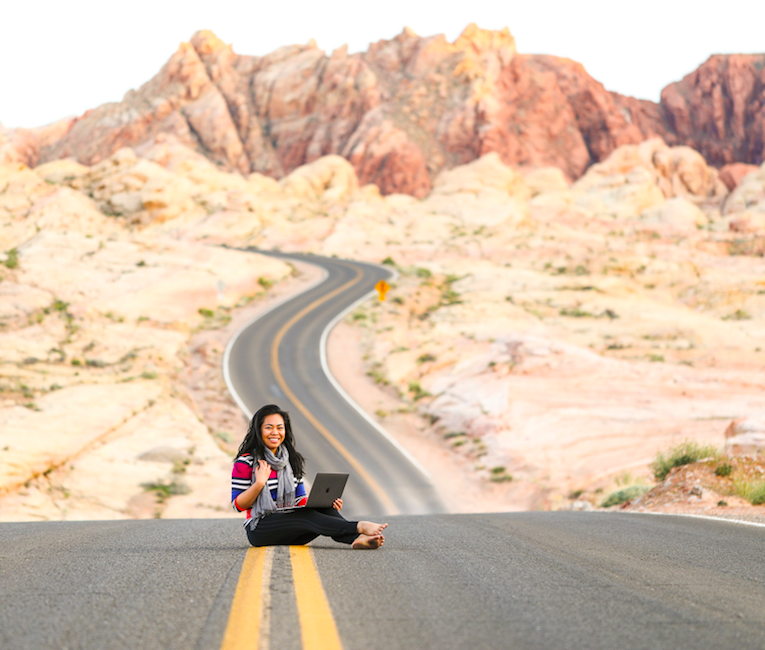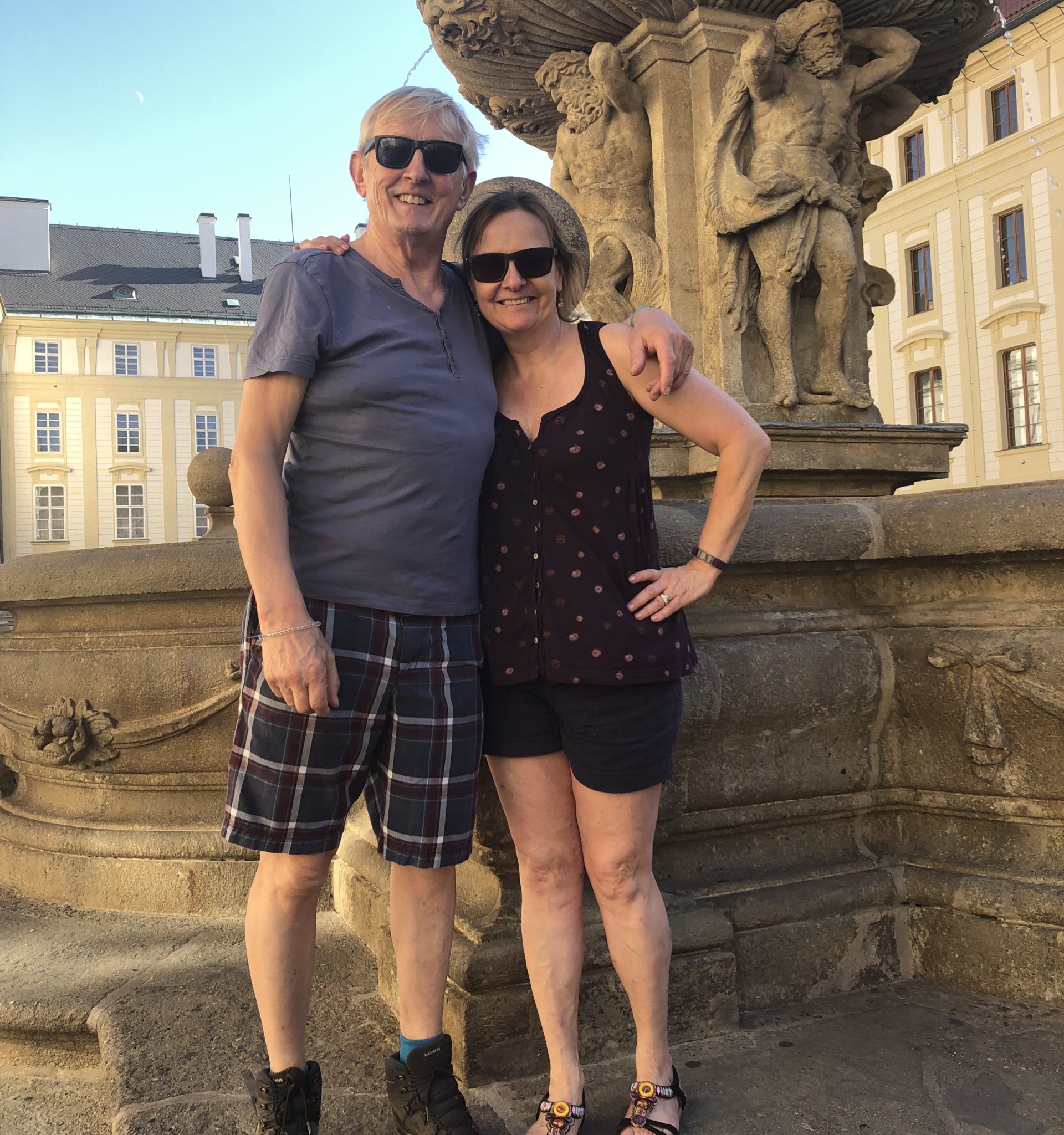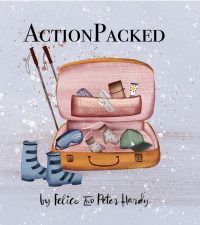
Debbie on the road
Peter Welcome to our travel podcast, we’re specialist travel writers and we’ve spent half a lifetime exploring every corner of the world.
Felice So we want to share with you some of our extraordinary experiences and the amazing people we’ve met along the way. This week, we’re exploring the world of travelling for a living – or rather making a living while you’re travelling. Digital nomads are the current breed of enterprising business people who tour the world with their laptops, settling wherever takes their fancy for days or for months at a time before moving on to fresh horizons.
Peter It might be on a beach in Brazil or in an ancient city in Andalusia or on a mountaintop in Nepal. These days, provided you have a stable internet connection, you can give up the rat race and work from anywhere in the world.
Felice But how can you go about it? Where do you begin? We caught up with Debbie Arcangeles who, as a self-styled remote entrepreneur, makes her living out of helping these nomads earn while travelling. Debbie, welcome to Action Packed Travel.
Debbie Thank you so much for having me here. I’m really excited to speak with you both.
Felice Let’s start by talking about the offbeat life. What is that exactly?
Debbie I run a website and also host a podcast called The Offbeat Life. So for the podcast, I interview travellers who ditched or nine to five to become remote entrepreneurs and digital nomads. And the website is essentially resources where people can find online jobs, teach them ways on how to get started with that or how to start working remotely.
Peter So if you want to give up the corporate life, your website is the place to come, right?
Debbie Exactly, yes.
Felice What inspired you to start it in the first place?
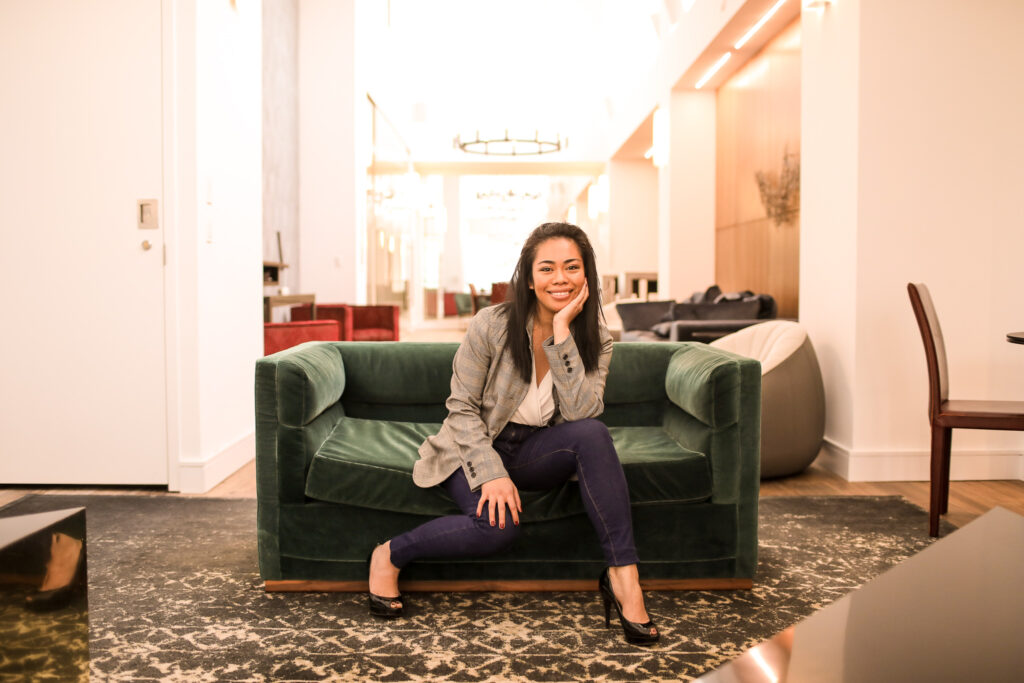
Debbie at home
Debbie Because it was something that I actually needed myself. I wanted to find resources and not just to find resources, but also speak to people who are actually doing it. And for me, I love getting inspired by people who have done it, who know what it’s like and I started with the podcast – and then the website started after that when people started to ask for more things that went along with it. So essentially, it was something that I needed and luckily other people ended up finding use for it as well.
Peter So I think for most people, if you had a 9-to-5 permanent employment, it’s really scary to give it up, because you’re worrying about your mortgage and how are you going to pay the bills and where the next check coming from. What do you have to say to people like that?
Debbie That is definitely what most people are worried about: the stability part of it. And right now, I think more and more people realise that even though people thought that it wasn’t stable with the pandemic happening, we all realise that it’s not that unstable. It’s actually one of the most stable things you can do if you’re creating income in multiple different ways. Because if you lose, then you also have other things that you can depend on in terms of income. In terms of stability, in terms of that, with health care, all of those things, you can either buy that yourself or you can still work remotely and work for a regular 9-to-5 corporate job, but you’re just able to work from anywhere as well. So there’s different options.
Peter But you don’t have to go into that office; you don’t have to commute in the morning and suffer all the pain of travel on the way home in the evening.
Debbie Exactly. Yes, that’s exactly why we love this lifestyle.

Debbie and friends. Photo: © Jessica Christie
Felice Where do you live?
Debbie I live in New York City, so it’s very, very expensive here. If I had the choice, I wouldn’t be here. But my husband works here, and a lot of our family, but before the pandemic, I used to travel a lot for work and we usually travel between down south and up north usually, before the pandemic happened.
Felice So your husband doesn’t leave the offbeat life, but you do?
Debbie Yes, he does not. We are trying to get to get him to that point. So hopefully in the next few years
Felice You still call yourself a digital nomad, though?
Debbie So I wouldn’t necessarily call myself a digital nomad; I call myself a remote entrepreneur and location independent.
Peter I guess we’re digital nomads really, aren’t we Felice?
Felice Yes, we can work anywhere as well, we happen to be in one place at the moment because of the pandemic and everything else.
Peter But we spend our lives travelling around. My office is my laptop and same for you, and we can actually now do it anywhere in the world. I mean, 20 years ago, it was a lot more difficult than it is now, but it’s really easy now. People don’t expect you to have an office like they used to. They expected you to have – certainly in the UK – to have an office and a landline. I remember people saying, ‘Oh, well, if this person’s got a mobile, that’s not a real business.’ But but now the days of landlines have gone, you can work from anywhere and do anything really.
Debbie Yes, absolutely. I mean, that’s really the beauty of this whole thing. I think the pandemic wasn’t all bad, because now we have more opportunities and so many more people are into it and many more businesses are actually realising that it can be done. Now there’s so much more opportunities for people to live this type of life.
Peter So how do people find work as a nomad or as a location independent person like yourself? How do they actually find work?
Debbie It really depends on what you want to do, right, because there are different ways to do it. There’s definitely job boards – you can obviously go to our website and we’ll show you all of those things, but it really depends. If you want to work online, the best place to look for it is online, like a simple Google search will do. But I think what people should be asking is how you can stand out and also what type of skills you actually need in order to land these jobs, right? Because with the internet now, you can always Google finding all those jobs but it’s another thing to actually land the work. So it really stems in the type of skills that you currently have, how you can use that to land the job. That is really important in this case.
Peter But monetising a website is quite difficult, isn’t it?
Debbie It’s not that difficult. It depends on your niche and how long and how hard you’re going to work on your website, because we all know nothing really comes easy. For a lot of people who are making a lot of money doing that, they’ve been doing it for several years and it’s a lot of trial and error. So it has to be about you persevering. There’s going to be a lot of low months, sometimes even years. But that’s really the name of the game. There’s really no quick thing here.
Felice And on your website you actually help people find work, is that right?
Debbie Yes. So our website actually helps people look at different types of online jobs that may be perfect for them. Then we send them to a site where they can either apply for them or they can find out more information. We also have a weekly newsletter that we actually send out to people that has jobs that they can apply to.
Felice So typically, what type of jobs are these?
Debbie Yes, absolutely. So it could be really anything from virtual assistant jobs. It could be things like crafters, people like assistants for different types of people, or it could be…honestly, it’s anything and everything that we give you. It’s just a matter of what it is that interests you. So it could be online businesses that you want to start of your craft, or you could go to Etsy. If you want to start a virtual assistant position, we have those for you as well.
Felice On your website there was a post on the best places to work remotely in the USA, I think it was.
Debbie Yes, yes.
Felice What would you say are the best places to work remotely?
Debbie Anywhere that’s not expensive and New York is definitely not one of them.
Peter But have you anywhere in particular you’d recommend in the States?
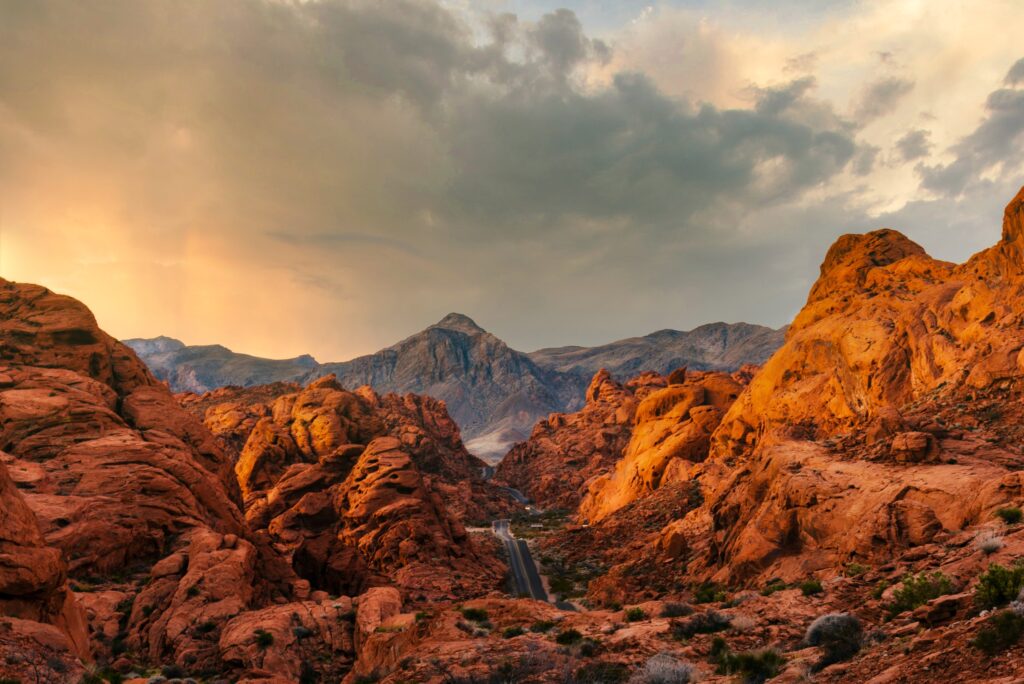
As well as being beautiful, Nevada has plenty of other benefits. Photo: © Joel Protasio/Unsplash
Debbie Yes, I mean, I honestly love anywhere down south, in the southwest, anywhere that we don’t have to pay income tax – like Nevada, Florida, places like that. Texas, where you don’t have to pay your income tax because that’s a lot of money that’s being taken.
Peter I didn’t think I knew that. In some states you don’t pay income tax, right?
Debbie Yes. I believe there’s about five or maybe seven of them that you don’t have to. So those would be good places to to look at.
Felice I had no idea about that.
Peter What about other countries in the world? You can go anywhere. I mean, your heritage is from the Philippines. Can you do it from there?
Debbie Yes, absolutely. Essentially, as long as you have internet right, you both know this, you can literally work from anywhere. So, again, it depends on what you like. If you like the beach, if you like all of those things, then South America and Asia are some of the best spots. But if you like city life, there’s probably Eastern Europe. It’s not as expensive than the rest of Europe. And there’s also a lot of really beautiful cities in Latin America as well where you can go to.
Felice Do you have any favourite places where you’ve lived or travelled to?
Debbie Favourite places that I’ve travelled to, not necessarily to live in, because they’re very expensive – it’s probably Iceland. It’s just out-of-this-world type of scenery. I also love Asia, Southeast Asia. I’m biased to the Philippines because I was born there. It’s also very cheap; almost everybody speaks English; if you need assistance you can always hire somebody from there. So I think it’s really great for people who are starting an online business; it’s a really great place to be. Yes, those are some of the best spots for me.
One of the best places that I always go to is I find little islands – I’m an island girl at heart. Every time I travel solo, I always find little islands to go to, like in the Mediterranean, in Europe. So those are some of my best places that I travel to.
Felice And the Philippines, they are islands, aren’t they?
Debbie Yes.
Felice Do have a favourite one there?
Debbie There’s too many of them, but I guess if I have to say, because I really haven’t been to too many, I still have to go back and explore, I would say. And the one area El Nido is really beautiful, that part of the country is really gorgeous.
Peter Now, I know in your website you said that one of your plans was to take early retirement – and you are far too young to do this – but where would you retire to when you do?
Debbie Yes, I’m actually not sure yet. You know my husband and I were actually talking about it and I think we just plan to travel, see a place for a few months and we like to slow travel – we’re not backpackers anymore – and just figure it out that way. So I guess that’s how we’re going to find out. It may change.
Peter Of course, presumably by being a remote worker, you can have as much vacation time as you want or as you can afford?
Debbie Exactly.
Peter I know that in the States compared to Europe, you have far less vacation time than we do here. I mean, sometimes people ask us when we’re in the States, I remember, somebody asked me once, ‘How many weeks a year do you have Peter?’
I was just embarrassed to say, because these people around the dinner table were talking about having two days here, a national holiday there and catching up and maybe making it 10 days in all. You can actually move into that world and you can have as much vacation time as you want – once you’re not tied to the corporate desk.

Debbie Absolutely, and in the United States I believe it’s what the standard is: two weeks’ vacation a year. It’s really ridiculous and that’s one of the things that I think about a lot and what I talk to people about is we shouldn’t be living to work. It should be opposite, like money should be there so that you can have a good life, not so that you can just work the rest of your life and then finally have fun when you’re too old to even do anything. And not even too old – I think when you’re a certain age, travel just means something different for you.
You know, when you’re young, it’s different to when you’re in your teens, in your 20s or 30s, 40s and above – it becomes a different thing. Like there’s something else that you’re getting from it and you’re not experiencing that. I think. it’s something that you’re missing out, especially if it’s something that you can do. I do know that travel is a privilege for us in the Western world, so if you’re not taking advantage of that, I think it’s such a shame.
Peter I do think that Covid crisis has made us think very carefully about how we spend our time and particularly how we spend our vacation time. And in fact, last week episode was all around a book called Time and How to Spend It by the writer James Wallman. And his view, backed up by a lot of scientific data, is that experiences are what really matter and what make you healthy and well and live a long life. It’s not the vacation time when you go and lie on a beach – that’s pretty unimportant, actually. It feels good, we like doing it, but what you really need are the memories that you get from a travel experience.
Debbie You’re both in the travel industry and so am I, and we know that after a while of doing this type of business, one beach just looks like another, right? What really makes it worthwhile are the people that you spend it with. I definitely agree with you and I definitely went through that transition during the pandemic – and even now. The people that I spend my time with are the people that are really close to me.
It’s so funny that now I’m saying no to things that are really not necessary. And once you start doing that, you realise who you really value and what you really value in your life – and I think it’s such a beautiful thing once you do that. And at first it’s very hard because a lot of times it’s hard to say no to things, to opportunities. But if once you just align everything to what you need – because there’s a lot of FOMO out there. I think it’s so important to understand that and to realise that as well. And like you said, Peter, the pandemic has definitely allowed us to see that so much more clearly.
Felice Before you started The Offbeat Life, what did you do for job?
Debbie Yes, so throughout my whole 20s, I actually tried a ton of different things. Honestly, I wanted to do that because I wanted to really understand where I fit in in this world. I was a photojournalist, I was a gallery assistant in New York City, I was a therapist for children, I was an art teacher. I did so many things. I started and failed three businesses, so it was a lot of exploration. It was a lot of really figuring out who I was, though, and definitely not something my parents taught me to do because I’m an immigrant – I come from an immigrant family, so there was a lot of back and forth. But it was probably one of the best things that I’ve ever done and I’m so glad that I did that.
Felice So you mentioned you had a few failed businesses. Has anything else gone wrong for you, like on your travels? Any disasters?
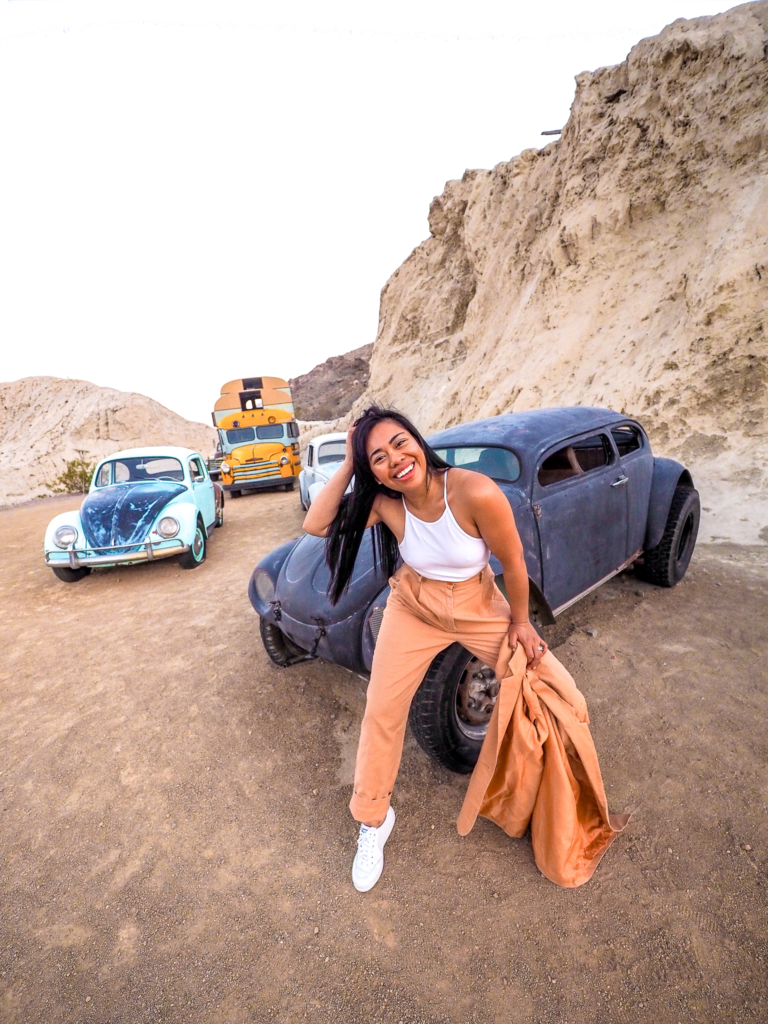
Debbie I don’t know, I don’t really see, especially when it. In terms of travel, of course, you know, you’ll miss things like flights or things like that, but at the end of the day, once you look back at that, you don’t even remember any of that stuff, honestly. There were moments where we were in the Middle East and there was aggressiveness. I’m not that type of person that looks back at that and was like, ‘I’m never going to visit that place again.’ If anything, it just makes it so much more interesting. Now, I have more stories to tell, and that’s how I see that that’s part of travelling, because at the end of the day, if it just is perfect all the time, then you may just stay in your own town. I think the experiences, the ups and downs of it, actually makes you grow, and I think that’s really important about travelling – just expecting that and embracing it. And embracing your feelings – sometimes you’re angry, you’re bad, you’re sad, you’re lonely, you’re happy. So I think it’s a beautiful thing.
Peter And if you can take your job with you, of course you’re earning money at the same time.
Debbie Exactly.
Felice You have interviewed some amazing people on your own podcast. I love the episode, I think it was the last one, about a guy who travelled all around…he travelled about 17,000 miles using public transport.
Debbie Yes, it was Eric – I love that episode. He travelled to, I believe, all the seven continents just by bartering his way through. It just goes to show you, if you have skills and you’re willing to use it, you can pretty much do almost anything you want. He’s such an incredible person and I was really lucky to be able to speak to him about that.
Felice We also on our podcast have had people who’ve travelled in strange – well not strange, but amazing – ways. We’ve had one person who cycled on his bike from…
Peter… from New York City to Rio de Janeiro.
Felice…and another person who went from London to Australia on their bike carrying a cricket bat.
Debbie That’s amazing!
Felice He stopped to play cricket wherever he went in different countries.
Peter I think he played cricket in 23 different countries on the way. I could have been baseball but it was cricket, and he thoroughly enjoyed it. And he made a lot of friends on the way, of course, as you do. And like the guy who travelled from New York City to Rio, he was collecting recipes and he said, ‘You know, if people say,:“What are you doing?” and you said: “Well, I’m travelling from New York City to to Rio de Janeiro,” that’s quite interesting. But I say “I’m collecting recipes along the way,” and they’d say: “Oh, you must come and have dinner with us tonight because we’ve got this great new local recipe, you know, traditional food from the area. You should try it before you leave.”’ So he made friends everywhere he went.
Felice So if you could choose, where would you be right now?
Debbie I think as I get older, the place isn’t as important as the people that I’m with. Obviously having beautiful backgrounds, all of that stuff. But I’ve travelled solo often enough to realise that when you don’t spend it with the people you love, it kind of lessens the experience because I’m always like, ‘I wish my husband was here,’ or ‘I wish my best friend was here.’ So honestly, anywhere that I can relax, laugh, eat really good food, have a good time, it really doesn’t matter.
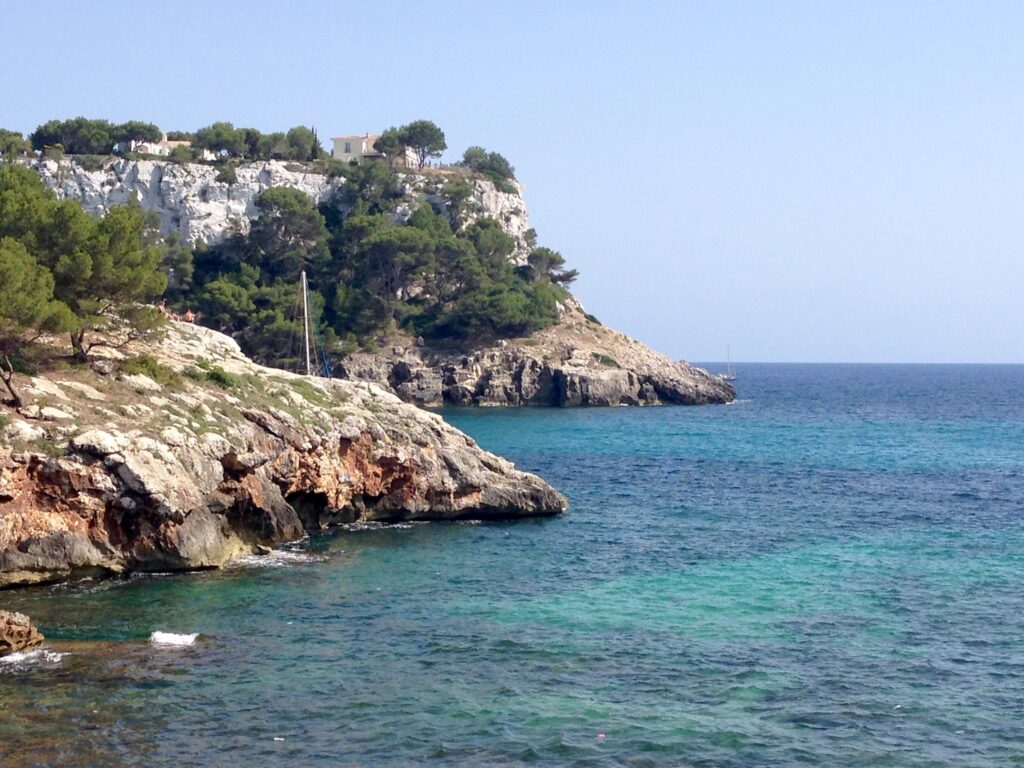
Menorca bay. Photo: © F.Hardy
But I would say if I had to choose the places that I would go back to, I would say one of them would be Menorca in Spain. It’s a little island and I did a solo travel there and I really want to take my husband there because it was a really, really beautiful place. And I did a lot of, ‘I wish he was here for this,’ just beautiful moments, amazing food, incredible people. Another place I would definitely go back and explore more is the Philippines. And I would love to, I don’t know, there’s just so many different places. But I guess I could start with those two.
Peter Is your husband from the Philippines as well?
Debbie No, he’s actually from here in the US. He’s American.
Peter So your next vacation, would it be to one of those places you mentioned, Menorca, the Philippines, or somewhere else?
Debbie] I’m not sure because everything is kind of up in the air right now in terms of travelling. But honestly, to tell you the truth, recently my husband well, especially with me, because I’m always the one that’s like, ‘Come on, let’s go travel.’ I’ve actually just been appreciating things that are more local and in the US.
I think before the pandemic, I was just really into like finding the most exotic places and the most faraway places. And now I’m like, I need to actually see where I am. I need to understand what’s here. I didn’t do that when I was in the Philippines. There’s foreigners that go there and they know way more than me in the country that I was born and I don’t want to do that for the United States. So I think I would like to do a lot more things that are in the US, maybe visit some more states, go to maybe Alaska and see what it’s like to hunt, I don’t know. Just try new things and I think it would be really interesting.
Peter I think me too. I’ve spent my life travelling the world. I’ve been not everywhere, but almost everywhere – but the country and at least probably is my own. Because you’re always working, always traveling somewhere else, and just recently we’ve been trying to have some what we call staycations here, where you staying in the country rather than travelling because we can’t. It’s fascinating, it’s a really beautiful place, there are bits of it I really appreciate now, that I didn’t before.
Debbie I would agree with you. I think England is one of the most beautiful places that I’ve been to because of your countryside. One of my best friends actually lives there, and I used to visit her before the pandemic at least once a year. And I would always do solo travels because she lives in London and I would just take trains just to go off and do mini hikes to see the little countrysides that you have. And it has so much history, so much beauty. I know most people are like, ‘I don’t like English food.’ I’m like, ‘I love English food.’ I’m like, ‘I don’t know what you guys are talking about. I think it’s delicious.’ I think the history there is just so incredible, like the architecture that you have – it’s one of the best. So, yes, I agree with that.
Felice We find it the other way round. We love coming to the United States because it’s so different.
Debbie Yes, exactly.
Felice Something that you don’t know is often more interesting in a way.
Debbie Absolutely.
Felice If people want to find your podcast or your website, what’s your website called again?
Debbie Absolutely. So if you want to find out more about what I do, my podcast, more resources and how to start working online, you can go to theoffbeatlife.com – it has all of that. You can also sign up for my newsletter where I send out online jobs that you can apply to every week. And we also have some checklist if you want to learn how to get your remote resumé going so you can land those jobs as well.
Felice That sounds really helpful.
Peter Getting back to your podcast and your website: revenue streams, various different revenue streams, can you tell us about those?
Debbie Yes, absolutely. So for me, the way I started and created income from my business was really through my podcast. So when I first started, I believe the first two years, 80% of my income was coming from podcast sponsorship and then the last year and a half – and also digital products – the last year and a half actually this year because of the pandemic, I really wanted to make sure that my income streams were more passive. So now I’m able to create income from podcast ads, affiliate marketing, ads on the website, digital products. So there’s different ways that I’ve been creating income and I’m really trying to get 90% of my income into passive income at this point.
Felice And if someone wanted to start a podcast, you’d be able to help them do that?
Debbie Yes, absolutely. I actually have another website called Howtocreateapodcast.com so it’s very easy. We have a lot of free resources there as well.
Peter Debbie Arcangeles, thank you very much for coming on the show and we wish you the very best of luck in this hopefully post-Covid world.
Debbie Yes. Thanks so much Peter and Felice, I really appreciate you both.
Felice That’s all for now. If you’ve enjoyed the show, please share this episode with at least one other person! Do also subscribe on Spotify, i-Tunes or any of the many podcast providers – where you can give us a rating. You can subscribe on Spotify, Apple Podcasts or any of the many podcast platforms. You can also find us on Twitter, Facebook and Instagram. We’d love you to sign up for our regular emails to [email protected]
© ActionPacked Travel
![]()
- Join over a hundred thousand podcasters already using Buzzsprout to get their message out to the world.
- Following the link lets Buzzsprout know we sent you, gets you a $20 Amazon gift card if you sign up for a paid plan, and helps support our show.
